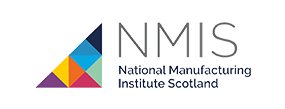Fundamentals of Digital Product Passports

Course Summary
This course provides an introduction to Digital Product Passports (DPPs) and their transformative role in manufacturing. Designed for time-scarce professionals, it explains the benefits, regulatory drivers, and practical implementation steps for DPPs in a manufacturing context. By the end of this course, participants will understand how DPPs enhance transparency, traceability, and sustainability while supporting circular economy strategies.
This is the third in a series of 3 courses, that provide targeted learning when done as standalone modules but are most effective when done in sequence.
- Fundamentals of ReMake
- Fundamentals of Sustainability in Manufacturing Businesses
- Fundamentals of Digital Product Passports
In this course it is assumed that learners have a base understanding of the circular economy, and the steps typically undertaken to remanufacture a product core. Learners who are unfamiliar with these concepts should first complete part 1 in the ReMake Learning Series - ReMake 1: Fundamentals of ReMake.
NOTE: This is a self-directed course delivered online. Please use the code to register.
The Fundamentals of Digital Product Passports course is made up of the following topics:
- Introduction to Digital Product Passports (DPPs)
- The benefits and barriers to DPPs
- The regulatory landscape for DPPs
- Information held in a DPP
- The ReMake DPP
- Final knowledge check
Periodic knowledge checks are conducted throughout this course.
During this course, participants will:
- Define what a Digital Product Passport (DPP) is and explain its role in improving transparency, traceability, and sustainability in manufacturing.
- Explore emerging technologies like digital twins, digital threads, and their relevance to DPPs.
- Identify the key benefits of DPPs to consumers and businesses.
- Explain the regulatory landscape driving DPP adoption, including the Ecodesign for Sustainable Products Regulation (ESPR).
- Identify data requirements of a DPP, such as QR code integration, and interoperability with digital systems.
- Recognise how DPPs support circular economy models by facilitating reuse, remanufacturing, and responsible end-of-life management.
By the end of this course, participants will have a clearer understanding of Digital Product Passports, their business benefits, regulatory implications, and practical steps for implementation.
This knowledge will help organisations future-proof their operations, comply with emerging regulations, and unlock new opportunities in sustainable manufacturing.
A certificate of completion will be provided at the end of this course.
This course has been developed by NMIS.
Free of charge.
Dates & Venues
| Date | Available now |
|---|---|
| Location | Self-directed online learning |
| Duration | 30 minutes |
| Cost | Free |
| Course token | Please use code: REMAKE_DPP |
In collaboration with

Funded by

